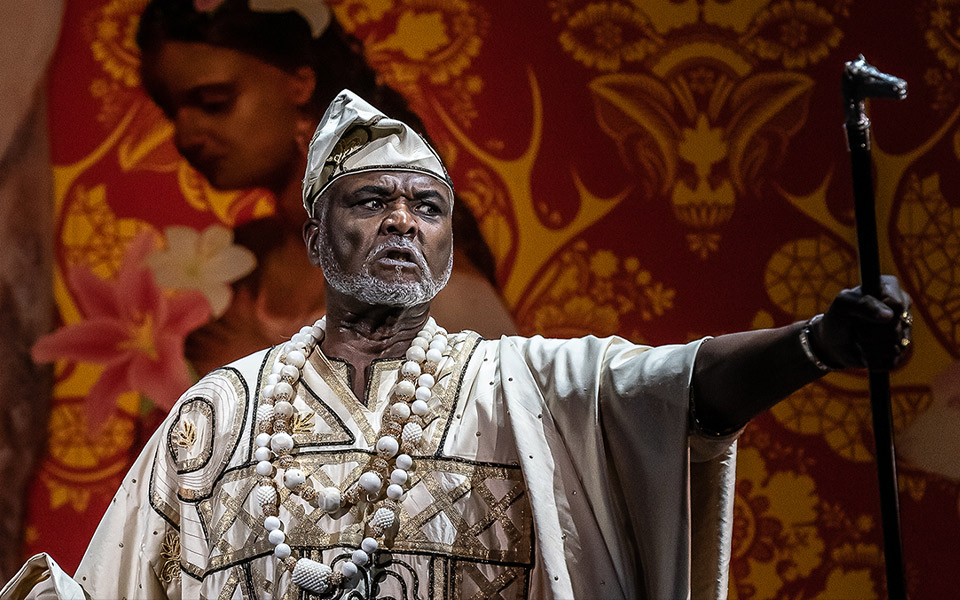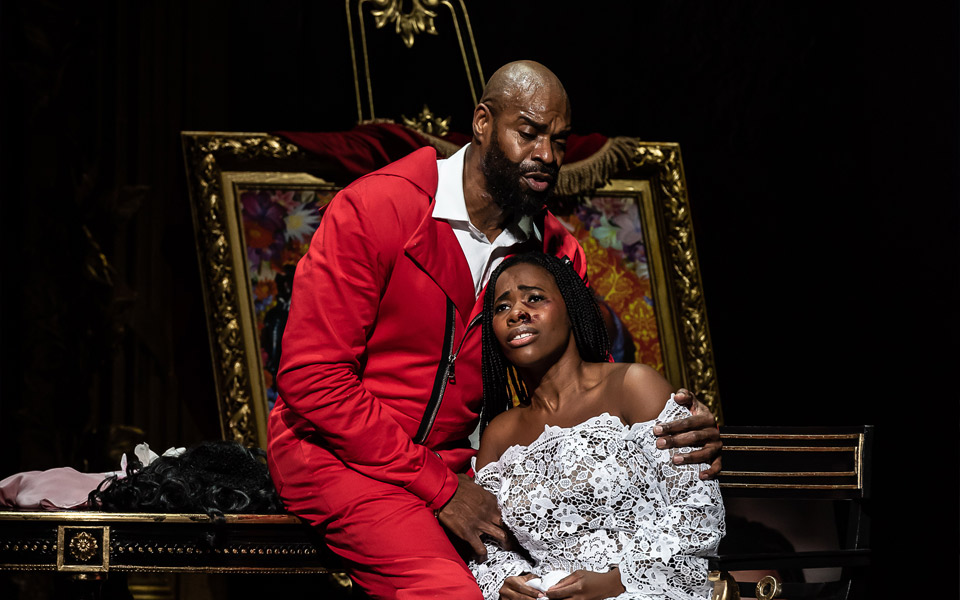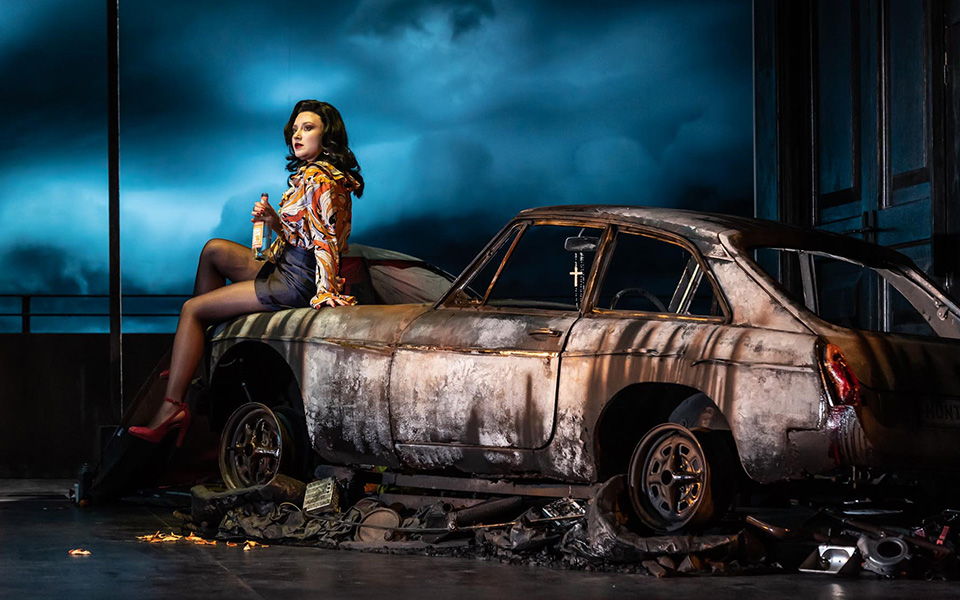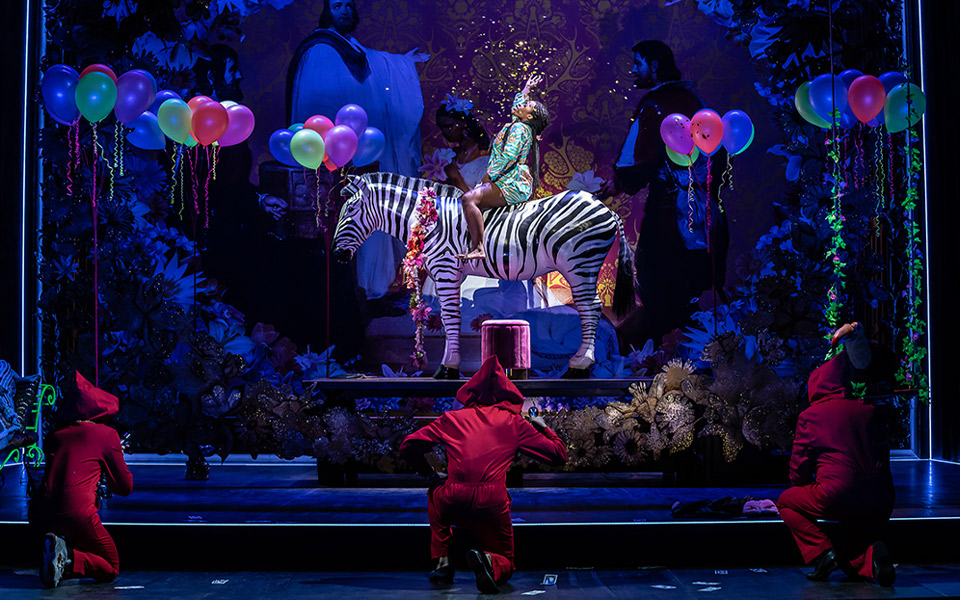
EXPECTATION ran high in advance of this new Rigoletto from theatre director Femi Elufowoju Jr, not least because it marked his first venture into the world of opera.
Opera North’s last skirmish with Giuseppe Verdi’s piece was a grubby gangland affair in 2007 that eliminated aristocratic titles along with Giovanna. This time, according to an interview in the programme, the setting was present-day ‘Mantua, UK’, adding racism to the work’s already heavy load of problems in society.
There was absolutely nothing wrong in choosing black singers for all the “outsider” roles, headed by Rigoletto, Gilda and Count Monterone, and including Countess Ceprano and Marullo, but it became a dodgy move.
During the prelude, we saw Rigoletto being primped in a dressing-room, for what seemed like a play within a play; there was a purfling of lighting round the proscenium. Attendees at the Duke’s orgy were a scruffy lot, mainly in everyday clothes, with men in paint-splattered overalls as if they had accidentally strayed in from backstage workshops. So far, so egalitarian.
Rigoletto’s moanings about his deformity (supposedly a hunchback) fell on deaf ears: here was the tallest man in the cast, a striking figure, standing tall, albeit occasionally writhing and twitching as if having an epileptic fit.
Sharp-eyed programme-readers might have gleaned that his was mental disfigurement caused by Monterone’s curse – hard to believe. To everyone else, it looked dangerously as if skin colour was the cause of the scorn he endured, quite the opposite of the intended effect. In any case, directors should not rely on programme notes to explain what they put on stage.

There were further difficulties. The whole kidnapping episode had an aura of farce. The (mainly white) thugs were far from menacing in their vermillion onesies, brandishing electric torches in synchronisation like Keystone Cops.
Retreating, they reappeared in Coco the Clown masks. It was hard to tell whether they were intended to be figures of fun or if this was simply a directorial misjudgement. Either way, it had little to do with Verdi, still less his librettist Piave.
Gilda had to be clumsily kidnapped from astride the life-size zebra in her bedroom (her menagerie also included a toucan). Like the duke’s palace, it was gaudily decorated in red and gold designs by Rae Smith more redolent of Bollywood than Brentwood.
Rigoletto’s arrest by two heavily-armed British constables was doubtless intended to evoke the law’s use of excessive force based on colour. Uncomfortable, of course – but also irrelevant here. Indeed, so many superimposed details seemed to cloud the director’s intentions.
Eric Greene carried the title role with surprising grace, given the wide spectrum of attitudes he was supposed to strike. In mid-range, his baritone was flexible and clean, less so higher up where his focus was more diffuse.
His duet with Gilda was touching. She was Jasmine Habersham, who made a virtue of her light soprano in a poignant, delicately ornamented ‘Caro nome’. She also looked every bit the ingénue, kept apart and therefore out of her depth, even if she needed to soar more in ensemble.

Roman Arndt’s self-regarding Duke seemed bent on Italianate tone at all costs, attractive enough but also mannered. Sir Willard White, returning to Leeds for the first time since 1984, injected authority as a stentorian Monterone. Callum Thorpe’s tattooed Sparafucile looked and sounded ruthless, pleasingly complemented by Alyona Abramova’s statuesque Maddalena.
They were certainly masters of the squalid landscape of Act III, with its corpse of a car, assorted detritus and shadowy lighting (Howard Hudson), a stylistic improvement on the tasteless décor earlier.
Despite the upheavals on stage, Garry Walker maintained a cool head and a decisive beat in the pit, and his orchestra reacted with discipline and confidence; the chorus was typically ebullient, if not quite as taut an ensemble as the orchestra.
But sight and sound were rarely synchronised: the director might have paid more attention to what is actually in the score. Opera audiences enjoy and understand history, even – given the chance – that of 16th century Mantua. They do not react well to having modern precepts constantly forced down their throats, especially when these have little or nothing to do with the original opera.
We still await the arrival of a director with the courage to be traditional in this work.
Martin Dreyer
Further performances: January 29, February 4, 11 and 19, then on tour until April 1. Box office: operanorth.co.uk


Very eloquently expressed and accurately reflects our views of our experience on the 29th.